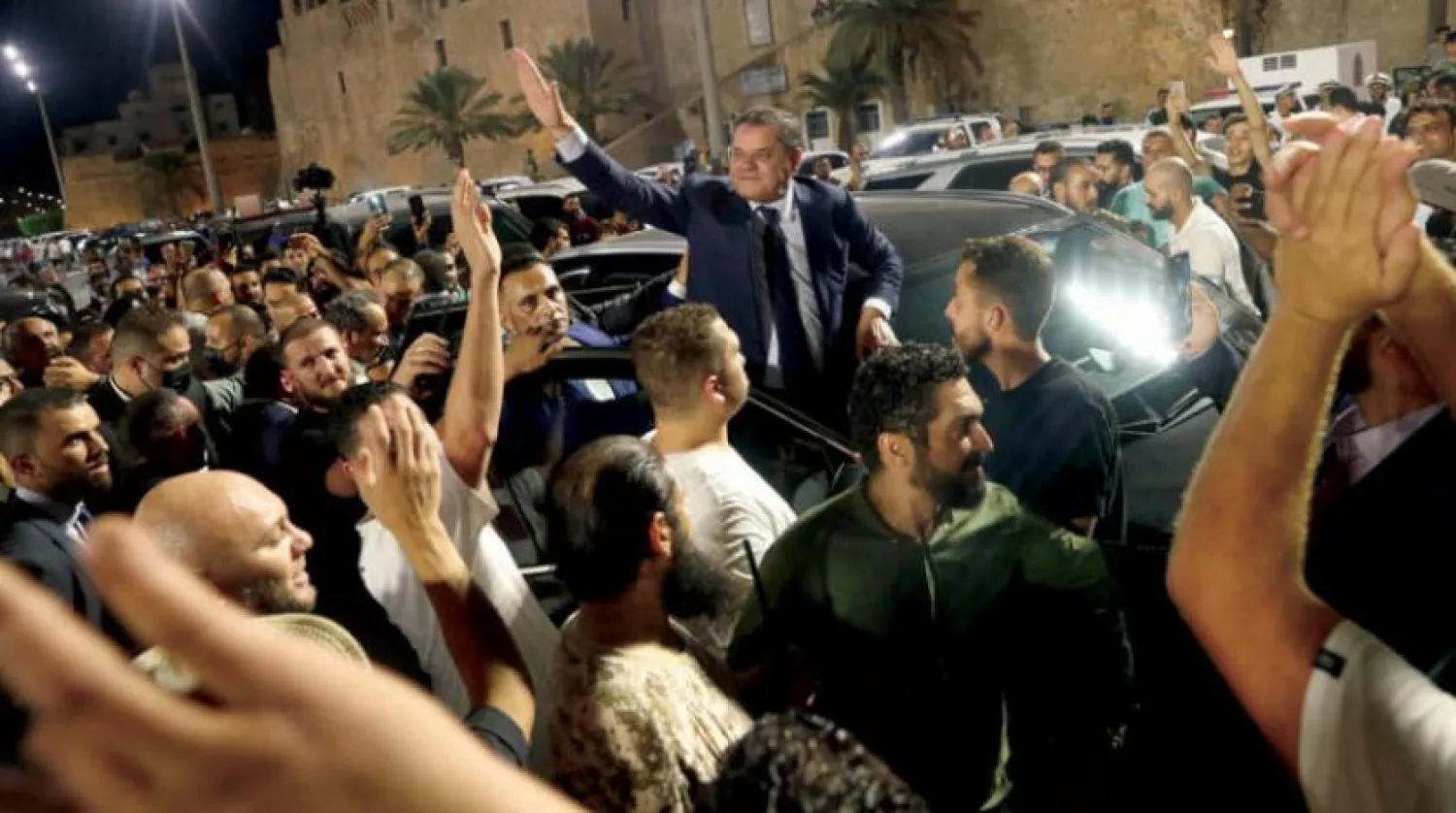Libyan Prime Minister Abdul Hamid Dbeibah denounced the House of Representatives' decision to withdraw confidence from his government, calling on his supporters to protest next Friday at Tripoli’s Martyrs Square.
Dbeibah told hundreds of supporters gathered late Wednesday in Tripoli that his dismissal was unacceptable and pledged not to leave his post until holding "free and fair" elections.
"No to war, no to division, yes to elections," said Dbeibah.
Dbeibah added that the House of Representatives (HoR) will inevitably fall and will not represent the Libyans in this way.
He told his supporters that "you are the owner of the word and legitimacy," calling on them to "protest in the capital of Tripoli on Friday to express your opinions about the parliament's decision."
Meanwhile, Speaker Aguila Saleh explained in a televised interview that the parliament has the right to withdraw confidence from the government, which has no authority to sign agreements with any country.
He said the government's answers in the questioning session did not convince the deputies, prompting the no-confidence vote. He also described Dbeibah's statements as an "incitement."
Despite Saleh’s remarks, 24 deputies announced that the vote "does not reflect the will of the House of Representatives, and leads to a constitutional crisis in the country."
They argued that the actual number of voters to withdraw confidence from the government does not exceed 73 members, whereas Article 194 of the bylaw requires an absolute majority of 87 deputies.
For its part, the United Nations Support Mission in Libya (UNSMIL) confirmed that the current government remains the legitimate government up until it is replaced by another through a regular process, following the elections.
Special Envoy and Head of UNSMIL Jan Kubis expected that the efforts of the HoR would focus on finalizing the parliamentary elections law and that the leadership of the HoR would advance efforts to build broad consensus on the emerging electoral, legislative framework.
"The holding of presidential and parliamentary elections on 24 December 2021 needs to remain the paramount objective, and any efforts to divert attention to other objectives work against the holding of the elections on 24 December 2021."
The European Union Mission to Libya said the statement of UNSMIL is very "significant," stressing that the focus should remain on holding elections as scheduled.
Meanwhile, Chairman of Libya's Presidential Council Mohamed el-Menfi lauded the positions of Saudi Arabia towards the Libyan crisis.
Menfi met with Saudi Foreign Minister Prince Faisal bin Farhan bin Abdullah in New York on the sidelines of the 76th UN General Assembly.
The Saudi FM confirmed the Kingdom's keenness to restore stability in Libya, expressing his hope for the success of all stages of the political agreement between all parties.
Menfi also met the Arab League Sec-Gen, Ahmed Aboul Gheit, in New York.
Aboul Gheit affirmed the League's support for the efforts of the Presidential Council and the unified national institutions, reiterating its commitment to support the country to reach a peaceful and consensual settlement.









